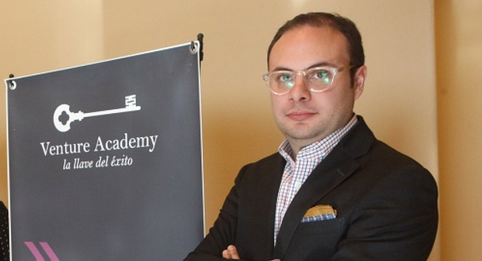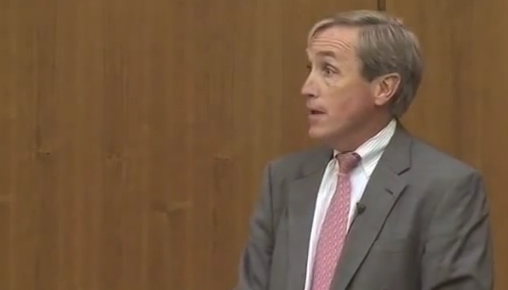Financial services are possibly the policy area where Brexit will have the strongest impact. The City of London is the largest financial centre in Europe; many financial firms offer their services from their London base, making use of “passporting” rights granted through European legislation, which are now clearly at risk.
As a result of being the financial heart of Europe, the UK has historically been deeply involved in shaping financial markets policies and pushing further financial markets integration, due to their great interest, expertise and resources devoted to this particular area. This is the case in terms of the European legislative work, where the responsible European Commissioner for financial services was the British Commissioner Lord Hill.
The strong British influence is also felt at the regulatory level. The European Supervisory Authorities (European Securities and Markets Authority, European Banking Authority, European Insurance and Occupational Pensions Authority) define the finer details of financial legislation and have grown in relevance since their inception in 2010. The UK plays a strong role in these authorities in terms of their technical input, physical resources and market expertise. Decreasing UK influence in the ESAs as a result of Brexit could have significant effects on the final content of legislation as well as on the way European supervisors agree to apply the rules.
I. Institutional impact
a) Lord Hill resignation: The most immediate institutional impact of Brexit was the resignation of Lord Hill as Commissioner for Financial Services, along with his Cabinet (political advisers), who will be replaced by Vice-President Valdis Dombrovskis, the former Latvian Prime Minister, Finance Minister and MEP.
b) European Supervisory Authorities:
Funding:
The three European Supervisory Authorities (ESAs) are funded through the EU budget and contributions from Member States, in accordance with their size. The UK leaving the EU means that a significant contribution to the budgets of the ESAs will disappear.
This could accelerate ongoing discussions on ESA funding in the context of the ESA review. The UK was one of the fiercest opponents of increasing the proportion of funding from the EU budget (as it would lead to a greater grip of the European Commission (EC) on the activities of the ESAs). Without UK opposition, this shift towards greater EC influence could become areality.
Negotiations:
Within the ESAs, Member State authorities negotiate policy and draft implementing legislation just like Member States do in the EU Council. Although the UK will remain a full member of the ESAs for at least the next two years, the UK NCAs could refrain from active participation which will mean that ESA outcomes will inevitably change as although all Member States have equal voting in the ESAs, members with larger financial markets are far more active and influential.
European Banking Authority (EBA):
The EBA, currently based in London, will need to be relocated to another Member State. Italy, Germany, Netherlands and Poland have already expressed interest in hosting the EBA and other Member States might follow.
Of more importance than the physical location of EBA is that Brexit could reduce the EBA’s influence. The EBA’s current role as a bridge between Eurozone and non-Eurozone banks risks being significantly diminished when the UK leaves. The European Central Bank (ECB) is the single supervisor for the Eurozone banks. The main counterweight to the ECB is the Bank of England.
With the UK exiting the EU, the ECB will progressively become more important for the entire banking sector and the EBA’s role in adopting technical standards for the single rulebook will be reduced.
A further post-Brexit supervisory effect is likely to impact those banks of EU Member States not in the Eurozone, and therefore not supervised by the ECB. These will face greater scrutiny as international investors might consider their supervision less strong and therefore the banks less stable. Brexit could lead to non-Eurozone member states opting in to the Banking Union at a faster pace than previously expected.
European Securities and Markets Authority (ESMA):
The UK has been a driving force in ESMA, which has been active in implementing legislation and coordination of supervision for capital markets and the UK expertise is undeniable. Staff at the UK’s Financial Conduct Authority (FCA) have been seconded to ESMA, and task forces and standing committees have regularly been chaired by FCA personnel. This has contributed greatly to the reputation of ESMA as a knowledgeable and credible supervisor at international level. Without UK membership, ESMA could lose considerable expertise.
ESMA’s powers might well increase; the UK, supported by Germany, was a fierce opponent of more direct supervisory powers for ESMA. For example, CCPs are now still supervised by colleges of national competent authorities instead of by ESMA directly; this might change. In the context of Capital Markets Union, the European Commission did not go as far as to propose a European supervisory mandate for the capital markets for ESMA.This, too, might change.
European Insurance and Occupational PensionsAuthority (EIOPA):
EIOPA is currently leading the joint committee of the ESAs, which devotes much attention to consumer protection and product governance standards. In this area, the UK is clearly ahead of the curve in Europe. This has meant the UK has been very much involved in developing European standards from within EIOPA.
Without the UK, it is very possible that this work stream will slow down within the joint committee.
c) EU in international Bodies(FSB, IOSCO, BIS)
The position of the EU in international supervisory bodies has been strengthened by the UK’s contribution to EU policy. Although there was not always full alignment, European cooperation has smoothed over the major differences, strengthening the overall European position. With the UK exiting the EU, the chances increase that the Bank of England (in Basel) and FCA (in IOSCO) will no longer discuss their respective positions ahead of international negotiations, making for increased differences of views within these fora. This will enhance the relative weight of non-European supervisors meaning that European interests could suffer. The UK has stressed the importance of sticking to international agreements, whereas some Member States feel less pressure to apply Basel agreements unaltered. Post Brexit, and without such pressure by the UK, it is more likely that the European Commission could consider deviating from the Basel Committee outcomes to the advantage of European banks.
II. Ongoing financial services policy discussions
The general assumption is that the Capital Markets Union project will suffer due to the departure of two of the powerful drivers of the project, the UK and Commissioner Hill. However, there is a broad consensus amongst Member States on the benefits of CMU.
Perceptions that CMU was purely beneficial to the UK may have hindered progress to date; without the UK, other Member States might feel more inclined to support the project.
There were even concerns that CMU would not go far enough, especially as the EU did not propose creating a Pan-European supervisor for financial markets. Without the UK, this idea to centralize supervision of European financial markets might well return.
III. UK industry and political motivations
A state of inertia between businesses and politics is occurring with both perspectives looking to see what issues the other will prioritize first. Fortune will favor businesses and industries that are able to do their thinking quickly and put it to the UK government and the EU as a priority negotiation position. While financial services may be headquartered in the UK, they are global by nature and therefore have a stake in other European markets. UK policy makers are cognizant of this and will look for businesses to make the case to other European capitals to explain why the UK’s negotiating position for financial services is mutually beneficial for EU Member States.
Financial services will be a priority for the UK negotiation team due to its political status, tax revenue and global interconnectivity. During the negotiation period, UK representatives will try to find a balance between:
1) giving their EU counterparts some appeasement wins (likely to be status orientated);
2) retaining the eminent position in real terms (as opposed to physical locality) of London as the location in Europe for ‘hubbing’ financial transactions;
3) ensuring there is parity of regulation so that transactions can occur seamlessly with Europe, but also;
4) ensuring the UK is able to competitively differentiate itself outside of the EU.
These are important criteria for financial services businesses to consider during Brexit negotiations. Access to the Digital Single Market and CMU will be prioritised by UK policy makers and the financial industry, and the bulk of existing financial services legislation is likely to be grandfathered. However, UK policy makers are looking for financial services to decide, firstly, which of the ongoing EU legislative briefs are a priority and, secondly, which existing legislation can be disregarded. This should be the starting point of any financial services industry dealing with the Brexit hangover. Throughout this process the role of trade bodies will be essential and we are likely to see a renewed interest by UK and EU policy makers in their significance – especially those such as the BBA, ABI, AFME and IMA. During the period of negotiation, trade bodies will be viewed by UK and EU policy makers as providing an element of much needed consensus and it would be wise for financial services industries to stick close to their peers.







